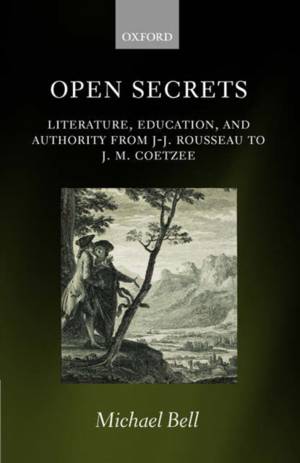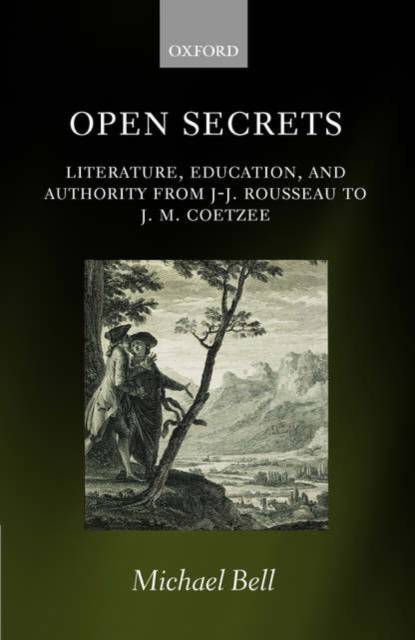
Bedankt voor het vertrouwen het afgelopen jaar! Om jou te bedanken bieden we GRATIS verzending (in België) aan op alles gedurende de hele maand januari.
- Afhalen na 1 uur in een winkel met voorraad
- In januari gratis thuislevering in België
- Ruim aanbod met 7 miljoen producten
Bedankt voor het vertrouwen het afgelopen jaar! Om jou te bedanken bieden we GRATIS verzending (in België) aan op alles gedurende de hele maand januari.
- Afhalen na 1 uur in een winkel met voorraad
- In januari gratis thuislevering in België
- Ruim aanbod met 7 miljoen producten
Zoeken
Open Secrets
Literature, Education, and Authority from J-J. Rousseau to J. M. Coetzee
Michael Bell
Hardcover | Engels
€ 290,45
+ 580 punten
Omschrijving
Open Secrets reflects on contemporary humanistic pedagogy by examining the limits of the teachable in this domain. The Goethean motif of the open secret refers not to a revealed mystery but to an utterance that is not understood, the likely fate of any instruction based purely on authority. Revisiting the European Bildungsroman, it studies the pedagogical relationship from the point of view of the tutor or mentor figure rather than with the usual focus on the young hero. The argument is not confined to works of fiction, however, but examines texts in which the category of fiction has a crucial and constitutive function, for a growing awareness of limited authority on the part of the mentor figures is closely related to fictive self-consciousness in the texts. Rousseau's Emile, as a semi-novelised treatise, whose fictiveness is at once overt and yet unmarked, is relatively unaware of the imaginary nature of its envisaged authority. Passing through Laurence Sterne, C. M. Wieland, Goethe and Nietzsche, the situation is gradually reversed, culminating with the conscious impasse of authority in Thus Spoke Zarathustra. All these writers have achieved their pedagogical impact despite, indeed by means of, their internal scepticism. By contrast, in the three subsequent writers, D. H. Lawrence, F. R. Leavis and J. M. Coetzee, the impasse of pedagogical authority becomes more literal as the authority of Bildung is eroded in the wider culture. The awareness of pedagogical authority as a species of fiction, to be conducted in an aesthetic spirit, remains a significant prophylactic against the perennial pressure of reductive conceptions of the education as form of instructional 'production'.
Specificaties
Betrokkenen
- Auteur(s):
- Uitgeverij:
Inhoud
- Aantal bladzijden:
- 272
- Taal:
- Engels
Eigenschappen
- Productcode (EAN):
- 9780199208098
- Verschijningsdatum:
- 5/07/2007
- Uitvoering:
- Hardcover
- Formaat:
- Genaaid
- Afmetingen:
- 156 mm x 234 mm
- Gewicht:
- 548 g

Alleen bij Standaard Boekhandel
+ 580 punten op je klantenkaart van Standaard Boekhandel
Beoordelingen
We publiceren alleen reviews die voldoen aan de voorwaarden voor reviews. Bekijk onze voorwaarden voor reviews.









